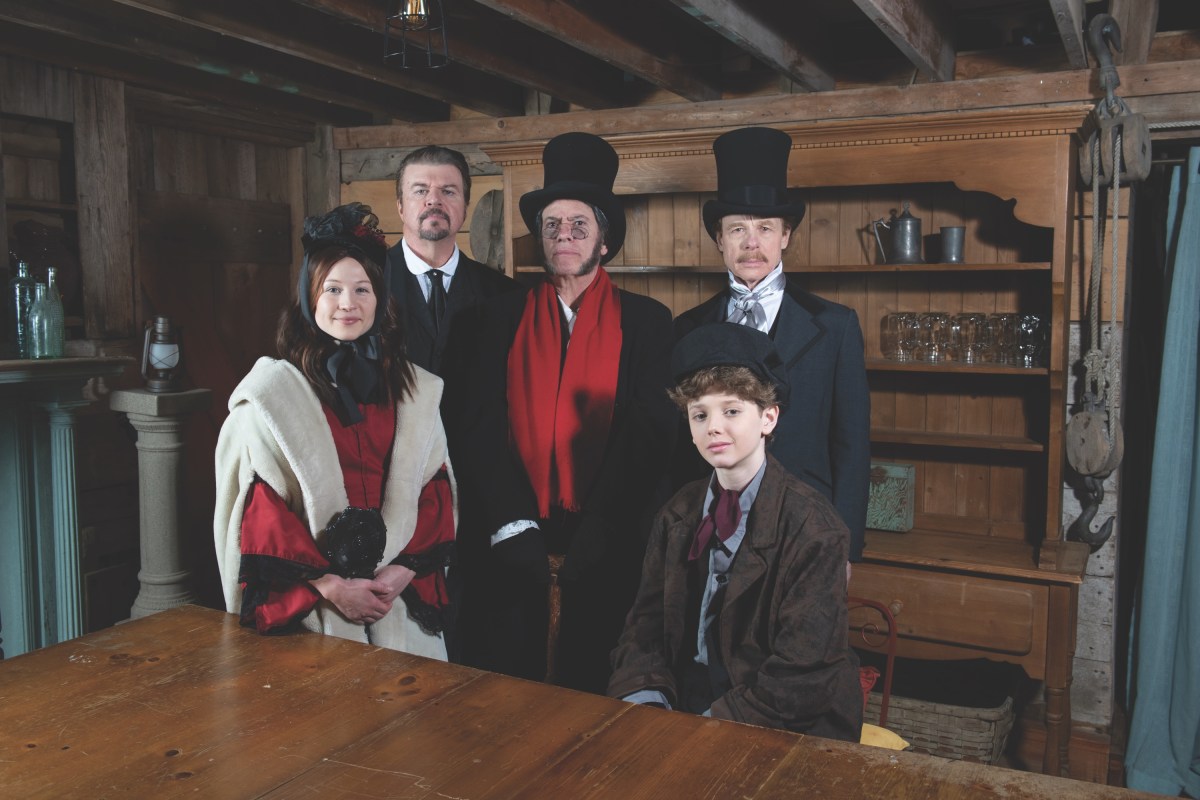Continuing from the Jan. 10 meeting, the Plainview-Old Bethpage Board of Education continued to hear proposals from academic chairs on the subject of new and improved classes and programs for the high school. While concerns about the upcoming state budget lent the evening a serious tone, and many parents brought up weighty concerns during public participation, the prospect of new technology and English classes produced many smiles from members of the board.
First, there was the usual slate of announcements, including the impressive fact that 169 students made the DECA state championships this year. “I wonder if there’s room for anyone else besides Plainview?” asked board president Gary Bettan jokingly.
The board also took a moment to honor the district’s four Intel Student Talent Search Semi-finalists this year: Adam Getzler, Jonathan Abraham Goldman, Alex Kusher and Jonathan Aaron Goldman. “We’re absolutely thrilled,” said Joyce Barry, science chair. Barry then explained the four student’s science projects to the board and community. Since the board meeting, it has been announced on the district’s website that Jonathan Aaron Goldman was named an Intel Finalist.
In the regular budget update, Superintendent Gerard Dempsey noted that he had been advised at a recent superintendent’s conference to meet with local legislators about budget concerns. He asked the board’s permission to reach out to the legislators on the topic, and they agreed.
Also in finance, Assistant Superintendent for Business Ryan J. Ruf noted that the business office was anticipating the budget report from the state, and he anticipated having hard numbers to share with the board by the time of the next meeting. On the subject of the possible tax cap, Ruf commented that he felt there already was an effective “cap” in the form of the voters, and that a tax cap would undermine local control. He went on to say that it was “frustrating” that the combination of a tax cap and unfunded mandates would basically determine how the district could spend its money.
Joyce Barry came back up to the microphone during the Future High School Curriculum Report, this time wearing the hat of the school’s technology chair. Barry reported that while the district had embarked on a partnership with the MSG Varsity cable network, the district’s cameras and computers were too outdated to be able to produce content compatible with the station. Fortunately, MSG Varsity has provided the district with a laptop and camera that they can use to produce some content. Evy Rothman asked if the video and camera equipment could possibly be rented, and Barry said she would investigate it. Bettan, who works in the audio/video industry, said that he too would investigate how to get the district new equipment at a reasonable cost. Angel Cepeda noted that he had looked into corporate donations, and as a result, 25 laptops should be on the way.
Barry also discussed the possibility of combining the television production class with the journalism class, something Jericho High School does, and the possibility of getting a high-definition camera for clubs to use in filming their events; the film could then be edited into event-DVDs by high school students.
Next, English chair Jeffrey Yagaloff discussed several additions and changes to his department. First, he suggested opening up the “Myths and Heroes” class to a wider variety of topics, and renaming it “Literature of the Supernatural.” While the class would still teach Greek myths and Homer’s epic poetry, the new class would be extended to allow for the work of authors like Ray Bradbury and Stephen King.
He then proposed rebranding the journalism elective, which has a low level of student interest- only seven students are currently enrolled in it. The new incarnation of the class would include journalism skills, but would also focus on blogging and electronic media.
The next proposal was replacing the “The Play’s the Thing” class with a contemporary literature class, which could include authors like Mohsin Hamid (The Reluctant Fundamentalist), Cormac MacCarthy and Jonathan Franzen. This class had scored highest on a survey gauging student interest in these potential new offerings. Emily Schulman noted that while she was not only in favor of the work of “dead white males”, she was somewhat concerned that the emphasis on newer material might prevent students from reading as many of the classics.
The chairman also discussed an interdisciplinary English 10H/Global Studies 10H class (which social studies chair Maria Carnesi had also discussed from a social students perspective at the previous meeting), new curriculum for the Writing for College classes, and an SAT prep class.
The SAT prep class sparked some debate, because while some board members liked the idea of “leveling the playing field” for students whose parents could not afford expensive SAT prep classes, others felt that moving the curriculum more towards test preparation and further away from enriching classes was going in the wrong direction. It was eventually agreed that the class would probably be held after school- both to allow for more content-rich classes during the eight-period school day, but also because, as several members agreed, “SAT prep does not look good on a college transcript.”
After these reports, POBJFK HS Principal James Murray gave a presentation on improving the Senior Experience Learning program.
Another major issue that the board discussed was the prospect of sending their assessments out to be graded by private companies. While having the tests graded externally would cost more money, Assistant Superintendent for Curriculum Jill Gierasch pointed out that hiring substitute teachers for the teachers who must leave class to grade the tests also costs money, and the price to students of lost class time with their teacher is significant. She also noted that those from other districts she had spoken with were happy with the grading service they had received.
During public participation, retired teacher Richard Siegelman offered to grade the tests for a higher fee in exchange for high grades for all students, which gave the board an excellent laugh. However, despite this humorous suggestion, the board seemed prepared to send tests like the ELA out to one of several grading firms that Gierasch had mentioned.
Also in public participation, Cheryl Dender gave a brief report on what the district PTA had been up to, which included Stratford Road Health Awareness Week, and a nutritionist’s visit to the K-Center.
Jane Pace, who has frequently criticized the district’s current Wellness Policy for negatively impacting club fundraising efforts, pointed out, with some hyperbole, that students could buy unhealthy things at a nearby Burger King that boasts the message “Welcome Plainview Students” on its front sign. She also pointed out that students could buy “Spirit Cards” at the school that could then be used at vendors of unhealthy food like Burger King. “I’m really not trying to be cynical, but this is what’s really happening,” commented Pace.
A member of the POB Parents Concerned About Bullying organization asked the board for the progress of the anti-bullying survey that the board had said they would implement; Dempsey responded that they are still negotiating with the survey companies, but he planned to make a recommendation to the board soon.
Stefanie Nelkens noted her concern about safety during this snowy period, encouraging the superintendent to decide on a delayed school opening when the weather poses challenges to transportation, since the delay involved in getting the children to school on a snowy day can often amount to the same thing as a delayed opening in practice. She also noted her concern that her child was unable to take home a book he needed for a homework assignment since the books were supposedly too decrepit; Gierasch responded that the need to replenish and/or replace books in certain areas is currently being addressed.
Project Challenge, the district’s gifted program, was the subject of plenty of discussion, as it has been on and off throughout the year. First, Gierasch shared the percentage of students involved in Project Challenge, something that had come into question at recent meetings. The percentages differ by grade, but comprise approximately 11 percent of students in grades three through six. Gierasch also noted that, presumably based on the many discussions the board has had on the topic, the Project Challenge Committee will be aiming to make the program more of a “gifted” program, rather than a more general enrichment program.
Later, a concerned parent explained to the board that she believed that their debates about the merits of Project Challenge had led to a misunderstanding about the value of the program within the community, and was concerned that the board too often emphasized the perceived negatives or limitations of the program.
Members of the board responded to the parent by saying that their discussion and criticisms of Project Challenge had been done in the hope to improve the program further, not to denigrate it in any way. The parent further commented that members of the board should be careful what they said regarding the topic, because it was easy for their statements to be exaggerated or misinterpreted.
The board also voted to circulate the first draft of a new Anti-Bullying and Harrassment Policy, which is currently available on the district’s website at pobschools.org. While the board did discuss the wording of the policy at some length at the meeting, Dempsey said that it was time to elicit feedback from the community on the draft.
The next board of education meeting will take place on Monday, Feb. 7 at 7:45 p.m. in the board room at Mattlin Middle School.






























